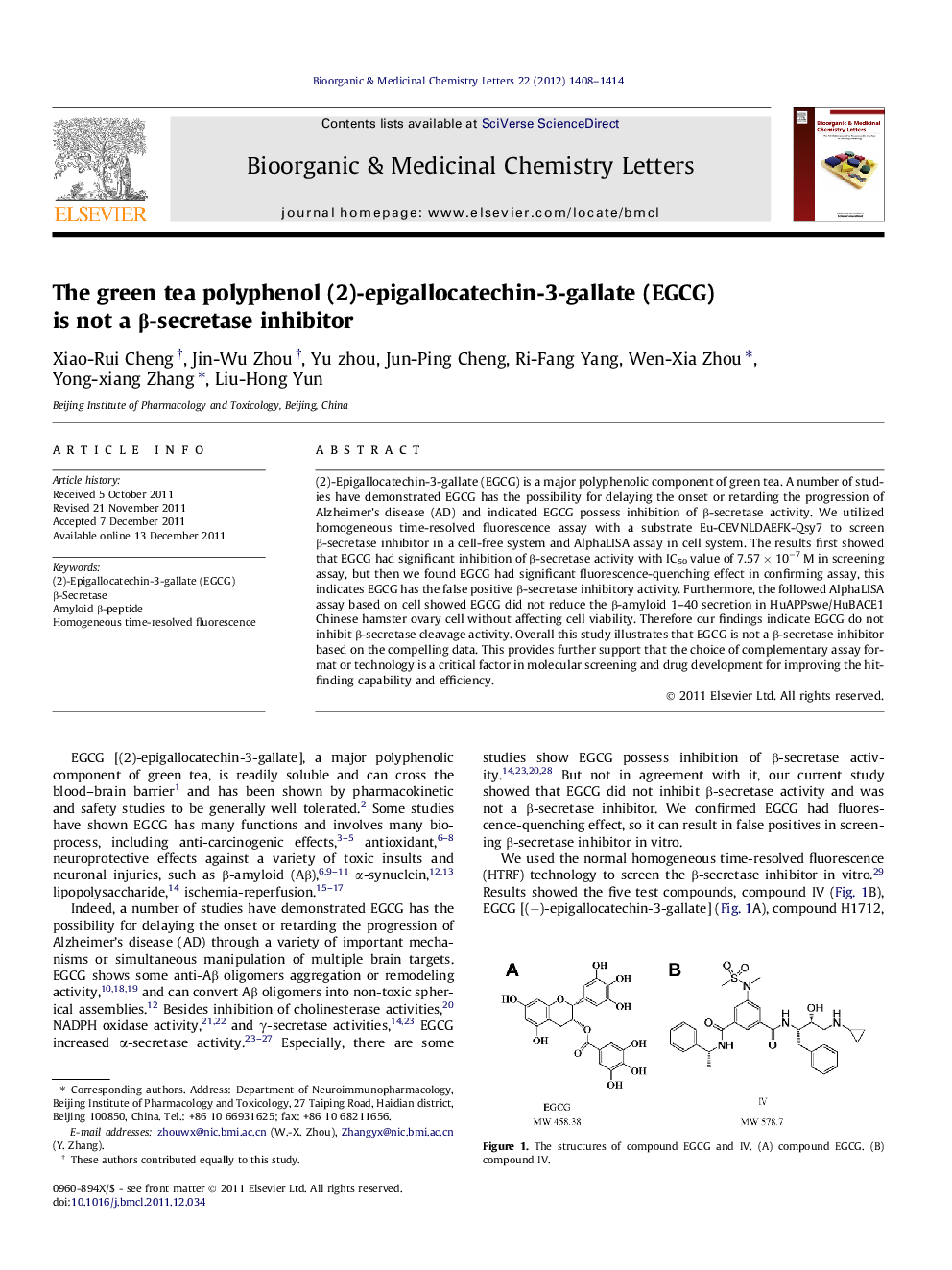| Article ID | Journal | Published Year | Pages | File Type |
|---|---|---|---|---|
| 1361500 | Bioorganic & Medicinal Chemistry Letters | 2012 | 7 Pages |
(2)-Epigallocatechin-3-gallate (EGCG) is a major polyphenolic component of green tea. A number of studies have demonstrated EGCG has the possibility for delaying the onset or retarding the progression of Alzheimer’s disease (AD) and indicated EGCG possess inhibition of β-secretase activity. We utilized homogeneous time-resolved fluorescence assay with a substrate Eu-CEVNLDAEFK-Qsy7 to screen β-secretase inhibitor in a cell-free system and AlphaLISA assay in cell system. The results first showed that EGCG had significant inhibition of β-secretase activity with IC50 value of 7.57 × 10−7 M in screening assay, but then we found EGCG had significant fluorescence-quenching effect in confirming assay, this indicates EGCG has the false positive β-secretase inhibitory activity. Furthermore, the followed AlphaLISA assay based on cell showed EGCG did not reduce the β-amyloid 1–40 secretion in HuAPPswe/HuBACE1 Chinese hamster ovary cell without affecting cell viability. Therefore our findings indicate EGCG do not inhibit β-secretase cleavage activity. Overall this study illustrates that EGCG is not a β-secretase inhibitor based on the compelling data. This provides further support that the choice of complementary assay format or technology is a critical factor in molecular screening and drug development for improving the hit-finding capability and efficiency.
Graphical abstract(2)-Epigallocatechin-3-gallate (EGCG) is a major polyphenolic component of green tea.Figure optionsDownload full-size imageDownload as PowerPoint slide
